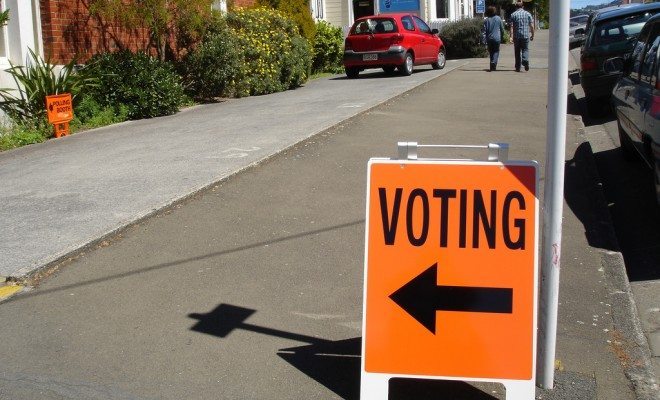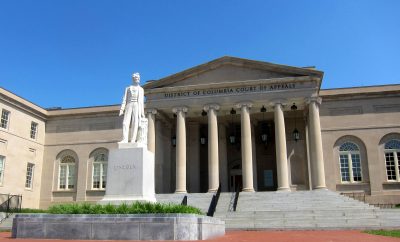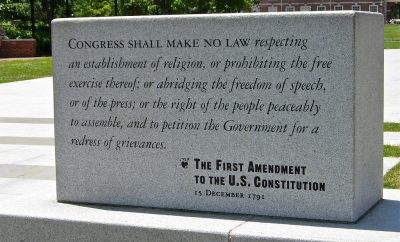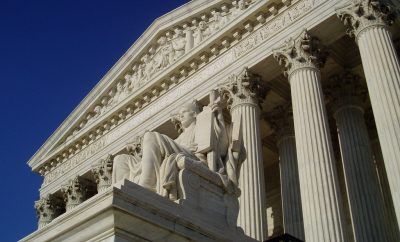
News
Don’t Count on the Supreme Court to End Racial Gerrymandering
On June 2, the Supreme Court decided to hear a challenge to Alabama’s Republican drawn legislative map–Alabama Legislative Black Caucus v. State of Alabama. The Alabama Legislative Black Caucus (ALBC) is suing under Section 5 of the Voting Rights Act of 1965, arguing that that the Republican-controlled legislature has racially gerrymandered Alabama’s state legislative districts. Racial gerrymandering is the act of drawing voting districts that decrease the voting power of minorities. However, in this case race was not the only driving factor. The goal of this gerrymandering was to provide the most Republican seats possible, and to do this the Republicans needed to decrease the power of the African American vote by packing them in as few voting districts as they could.
This case is reminiscent of Shelby v. Holder, in which the Supreme Court struck down Section 4 of the Voting Rights Act, but chose to uphold Section 5. Section 4 established that certain areas of the country needed to be reviewed and subjected to targeted remedies. An example of this section in action was the suspension of the tricky literacy test that African Americans had to pass in order to be able to vote. Section 5 provides that any change that impacted voting in these areas has to be reviewed by the federal government. The majority opinion, written by Chief Justice John Roberts, held that Section 4 of the Voting Rights Act imposed burdens that are no longer necessary giving current race conditions. They held that the constraints in this section once made sense, but now represents an unconstitutional burden that conflicts with a state’s right to run its own elections. They cited that the original goal of the law was to narrow the voting turnout gap, which is no longer a problem.
Justice Ruth Bader Ginsburg wrote a passionate dissent, in which she said that the law should have been upheld, citing that racial problems still existed. She admitted that “access to ballots” for African Americans was no longer a problem, but that they faced new issues, such as racial gerrymandering. This would make me think that Ginsburg would rule in favor of the ALBC in the current case, but she also said that the ruling in Shelby crippled Section 5. This means that she might be forced to rule against the ALBC without Section 4.
It would seem very unlikely that the court would rule in favor of the Alabama Legislative Black Caucus after its ruling in Shelby. Shelby was decided along partisan lines with the conservative judges voting to strike down Section 4 while the more liberal judges all voted to uphold the section. There seems to be no apparent reason why any of the conservative judges would give any power back to the Voting Rights Act, especially considering the fact that Chief Justice Robert’s opinion in Shelby took away the power of Section 5. To rule in favor of the ALBC would be to backtrack on his ruling last year. This could possibly mean that the conservative judges may have been the ones who granted certiorari as an opportunity to say that this type of gerrymandering is constitutional or to strike down Section 5. Justice Thomas had even wanted to strike down Section 5 in Shelby.
Because racial gerrymandering is not likely to be prevented by the courts, the key to stopping it will be to stop all gerrymandering. As mentioned earlier in the article, gerrymandering is not used to give a disadvantage to any particular race, but to give a disadvantage to a particular political party. So in this case, Republicans wanted to hurt Democrats by putting as many African Americans, in as few districts as possible, in order to hurt their voting power for the Democratic Party. Democrats also gerrymander in states where they control the legislature, for example Maryland, so this is not a one party issue or a race issue. Both parties limit the voting power of the minority party in the states they control. Therefore the solution to this, and the racial gerrymandering that this case is about, is to create independent, bipartisan redistricting committees, such as the one in California. This will end partisan control of state congressional districts and lead to more fair and balanced districts, with no citizens having their voting power reduced by a mapmaker.
Image courtesy of [Cle0patra via Flickr]








Comments